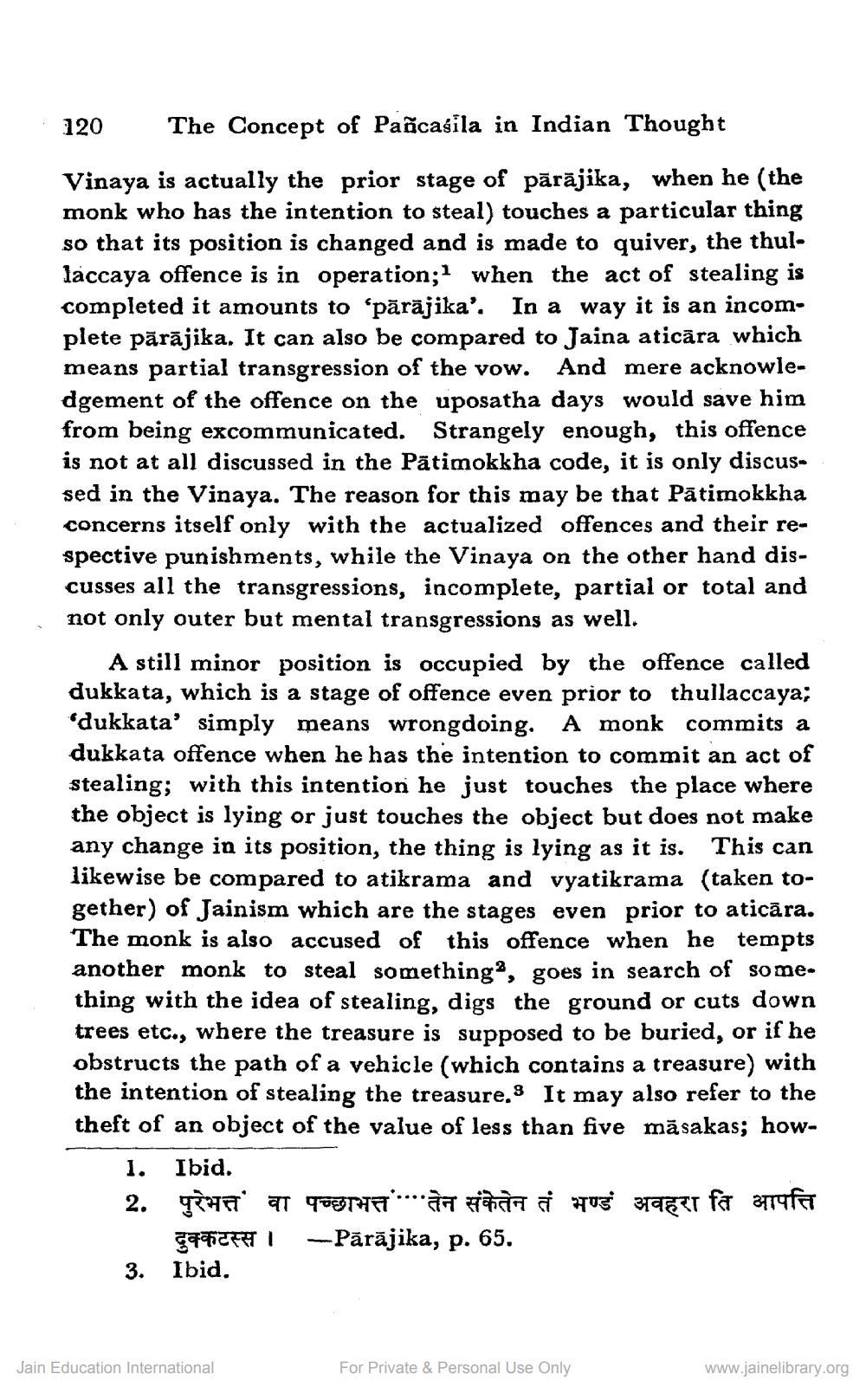________________
120 The Concept of Pancasila in Indian Thought
Vinaya is actually the prior stage of pārājika, when he (the monk who has the intention to steal) touches a particular thing so that its position is changed and is made to quiver, the thullaccaya offence is in operation;1 when the act of stealing is completed it amounts to 'pārājika'. In a way it is an incomplete pārājika. It can also be compared to Jaina aticāra which means partial transgression of the vow. And mere acknowledgement of the offence on the uposatha days would save him from being excommunicated. Strangely enough, this offence is not at all discussed in the Pätimokkha code, it is only discussed in the Vinaya. The reason for this may be that Pätimokkha concerns itself only with the actualized offences and their respective punishments, while the Vinaya on the other hand discusses all the transgressions, incomplete, partial or total and not only outer but mental transgressions as well.
A still minor position is occupied by the offence called dukkata, which is a stage of offence even prior to thullaccaya; 'dukkata' simply means wrongdoing. A monk commits a dukkata offence when he has the intention to commit an act of stealing; with this intention he just touches the place where the object is lying or just touches the object but does not make any change in its position, the thing is lying as it is. This can likewise be compared to atikrama and vyatikrama (taken together) of Jainism which are the stages even prior to aticāra. The monk is also accused of this offence when he tempts another monk to steal something, goes in search of something with the idea of stealing, digs the ground or cuts down trees etc., where the treasure is supposed to be buried, or if he obstructs the path of a vehicle (which contains a treasure) with the intention of stealing the treasure. It may also refer to the theft of an object of the value of less than five māsakas; how
1. Ibid.
2. पुरेभत्त वा पच्छाभत्ततेन संकेतेन तं भण्डं अवहरा ति आपत्ति -Pārājika, p. 65.
दुक्कटस्स ।
Ibid.
3.
Jain Education International
For Private & Personal Use Only
www.jainelibrary.org




